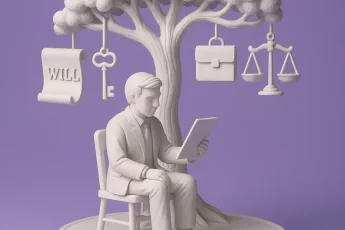I have a Grant of Probate – what do I do now?
The issuing of the Grant of Probate by the Probate Registry is a critical step in the administration of any estate but there is still much more work to be done by the Executor. Midwinters Partner, Mark Lynham (mark.lynham@midwinters.co.uk ), explains more:
Once the Executor receives the Grant of Probate from the Probate Registry, they can then begin the Post-Grant stage. The issuing of the Grant is a vital step because the Grant is the legal document which formally recognises that the Executor has the legal authority to administer the estate. It is widely accepted by banks, building societies and investment holders, as well as by anyone who might buy the deceased’s property.
The Grant enables the Executor to close down the deceased’s bank and building society accounts, encash or transfer any shares and, perhaps most importantly, to sell or transfer the deceased’s property.
Once the Executor has received estate funds, they can then settle the estate’s debts and pay off any balance of Inheritance Tax which might be due.
The Executor also needs to finalise the deceased’s financial affairs generally, including ensuring that any pension overpayments are paid back and that the deceased’s income tax position to the date of death is settled with HMRC.
The Executor also must settle the tax position (Income Tax and Capital Gains tax) of the estate administration period.
The final stage is usually to distribute the remaining estate to the Beneficiaries, either in accordance with the terms of the Will or, if there is no will, in accordance with the Rules of Intestacy. The Executor must account to those people receiving the residuary estate and this is usually done by preparing a set of Estate Accounts which will contain all of the details of the estate, including assets and liabilities, the Inheritance Tax position, any income received, capital changes and how the estate is distributed.
The above is a very brief summary of what is involved in the Post-Grant stage and the actual amount of work required can be substantial. The responsibilities of being an Executor are onerous and involve duties to the Beneficiaries, the Probate Registry, HMRC and any creditors to the estate and it is not a role to take on lightly. If you are in any doubt about what to do, you should always seek help and advice from a solicitor.
At Midwinters, we can offer an obligation-free initial appointment. Please call us on 01242 514 674 to discuss further.





